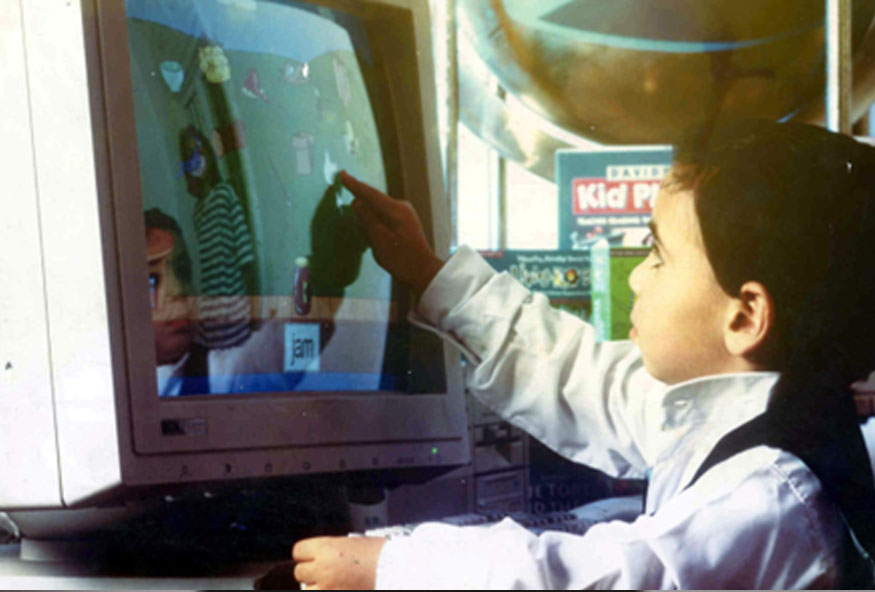
Regional Information Technology Institute & Software Engineering Center
The Regional Information Technology and Software Engineering Center (RITSEC) was established in January 1992.
It was founded as a joint project between the United Nations Development Program (UNDP) and the Arab Fund for Economic and Social Development (AFESD).

About Us
• The Regional Information Technology and Software Engineering Center (RITSEC) was established in January 1992.
• It was founded as a joint project between the United Nations Development Program (UNDP) and the Arab Fund for Economic and Social Development (AFESD).
• RITSEC is a regional institution, which has developed innovative projects that have helped in the transformastion to the digital age.
• Located in Cairo, RITSEC is non-profit organization which provides technical, professional, and developmental services to agencies, institutions, and government organizations across the Arab region.
• RITSEC has continued to work successfully to fulfill its original mission of continuously buidling model institutions , innovative projects and human capacities for the region.
• To this end, RITSEC has always been very active in incubating young projects by giving them the opportunity to experiment with and apply new ideas and technologies. Once these projects are sufficiently grown and established, they are commercialized to become independent entities capable of competing in the local and international private arena.
-
Vision
Creating societal innovation and building regional and global information economies
-
Mission
Help accelerate social-eceonmic development and support regional transition to the knowledge and information based sociaties.
-
Objectives
Since inception, RITSEC has been commited to the following objectives:
- ■ Accelerate socio-economic development through innovation and leading ICT projects.
- ■ Help build newer generations of human capacities and institutinal capabilities.
- ■ Provide regional leadership in internet , DSS, software engineeting, Ai, CultureWare and digital transformastion.
- ■ Support the growth of knowledge, Information and communication infrastructure.
- ■ Build a regional hub for Innovation and innovators: People, Organization and Nations.
Our ServiceS
RITSEC is a catalyst and a builder of innovative projects , Initiatives and services. RITSEC offers a range of services across the Arab region to support socio-economic development and strengthen the region’s role in emerging industries. Its services focus on enhancing the information technology and software engineering capabilities of Arab professionals and institutions. RITSEC’s core offerings include consultancy, project formulation and management, project design and implementation, training, product and system development, and technical support.
Initiatives

Internet & Communication Networking
Networking the Region
- In the early 90s, RITSEC was the leader in introducing the internet to Egypt, arab world (13 countries) and Africa.
- Regional integration: Led efforts to connect Arab countries through a regional network to promote knowledge sharing, experience transfer, and socio-economic cooperation.
- Economic empowerment: Promoted the use of the internet to boost trade and economic collaboration among Arab nations.
- Global connectivity: Worked to integrate the Arab region into the global information society by linking it with the international community. Pioneering experience: In 1996, RITSEC introduced the internet to Egypt and served as the backbone of the Internet Society of Egypt.
- Regional leadership: Launched the Arab Regional Initiative to extend internet access across the Arab world.
- Support to RAITNET: Provided services and support to 24 RAITNET agencies representing 22 Arab countries.
- Capacity building: Delivered continuous consultation, technical assistance, training courses, workshops, and seminars based on its firsthand experience in Egypt.
- Direct facilitation: Acted as the internet gateway for Jordan and Syria during their start-up stages, deploying experienced Egyptian professionals to support their connectivity efforts.
Throughout 10 years of hard work, RITSEC’s Arab Regional Initiative helped Arab countries build national information societies by providing technical support and establishing over 10 specialized networks, including trade and environmental information networks.

Decision Support Development
Utilizing New Tools for Strategic Decision Making
- Experience leverage: Built on its 1985 experience with Egypt’s Cabinet Information and Decision Support Center (IDSC) to assist Arab countries in developing their own decision support centers.
- Knowledge transfer: Successfully shared expertise to help countries formulate national IT strategies and socio-economic development programs.
- Project support: Provided consultation and technical assistance in project design, feasibility studies, and conceptual frameworks for countries like Jordan, Kuwait, Syria, Tunisia, and Oman.
- System development: Participated in developing IT systems to support national targets and objectives.
- Execution and management: Continued to offer bilateral project management and execution support where needed.
- Capacity building: Organized seminars for decision-makers and workshops for executives, while supporting software engineering development across the Arab region.

E-learning: regionally and globally
Linking the World through e-Learning.
- Launch & Aim (1995): Established to build a global e-learning environment for human resource development using emerging ICT under the Global Campus framework.
- Personalized Engagement: Enables one-on-one teacher–student interaction using cutting-edge delivery methods (Internet, satellite links, multimedia).
- Global Courseware Access: Provides learners worldwide with interactive online access to a comprehensive, multidisciplinary resource library.
- Arab Virtual University: Created the first Internet-based Arab university, offering postgraduate degrees in IT, software engineering, and business for those unable to attend traditional campuses.
- Strategic Partnerships: Secured collaborations with U.S. and European universities, plus regional training institutions, to deliver online master’s programs, professional diplomas, and specialized courses.
- Global Campus Evolution: In ten years’, time, it expanded into a full-service platform delivering academic distance-learning master’s degrees, continuing professional education, and interactive executive workshops.
- Advanced Delivery Methods: Deployed a mix of Internet, videoconferencing, multimedia CD, and cyber-tutoring technologies to support state-of-the-art distance learning.
- Personalized Engagement: Prioritized one-on-one teacher–student interaction via networks, satellite links, and multimedia tools.
- Universal Access: Provides learners worldwide with an interactive online portal to a multidisciplinary pool of courseware.

E-child: 21st century kids
Arab Child Initiative
- Launch & Aim (1997): “Investment in Our Future” to equip Arab children with 21st-century skills for global competitiveness.
- Kids of the Twenty-First Century Program: Established Twenty-First Century Clubs and the Little Horus website to promote IT knowledge and global engagement.
- Regional Roll-Out: Deployed clubs and youth portals in every Arab country for hands-on ICT training and world-wide exposure.
- Content & Innovation: Spurred Arabic children’s programming by the private sector and encouraged youth-driven tech innovation.
- Little Horus Platform: First pan-Arab site offering bilingual (Arabic/English) knowledge circles that bridge national and international divides.
- International Recognition: Awarded four global prizes for its impact and broad adoption by Arab youth and educational institutions.

E-Commerce
Building the Arab e-Market.
The e-Commerce Initiative empowers Arab developing countries to expand their share of world trade and support SMEs by leveraging advanced ICT. It began with a pilot model in Egypt that integrated end-to-end digital trade workflows and then developed secure transaction protocols, privacy safeguards, customs automation, and robust network infrastructure. Through RAITNET, it convened a special interest group of trade, banking, and ICT agencies that issued reports and studies to guide regional e-commerce adoption.

CultureWare
Using Modern Technology to Preserve the Past
Amid global shifts that have sidestepped the Mediterranean and Middle East’s rich heritage, RITSEC launched its Preserving the Past Initiative and the Culture ware Program to deliver end-to-end IT solutions—using imaging, text, audio, video, and multimedia—for comprehensive documentation of museums, manuscripts, and archaeological sites. Over ten years, Culture ware has completed more than 25 projects across the Arab region (Egypt, Tunisia, Morocco, Jordan, Syria, Yemen, Palestine), Europe (Italy, Portugal, Spain, the Euro-Mediterranean), and the U.S. (Princeton, Chicago), integrating science, art, and technology to preserve and share Arab cultural heritage.
 RITSEC
RITSEC